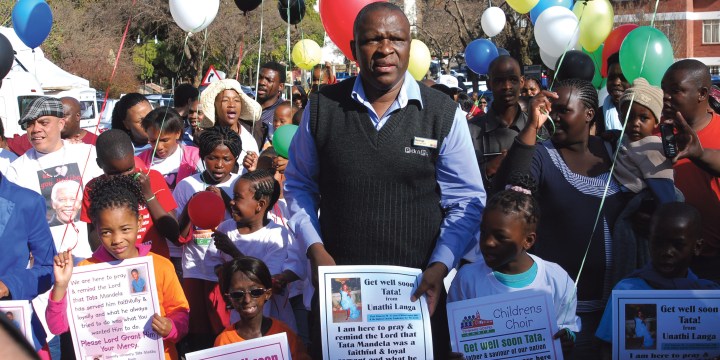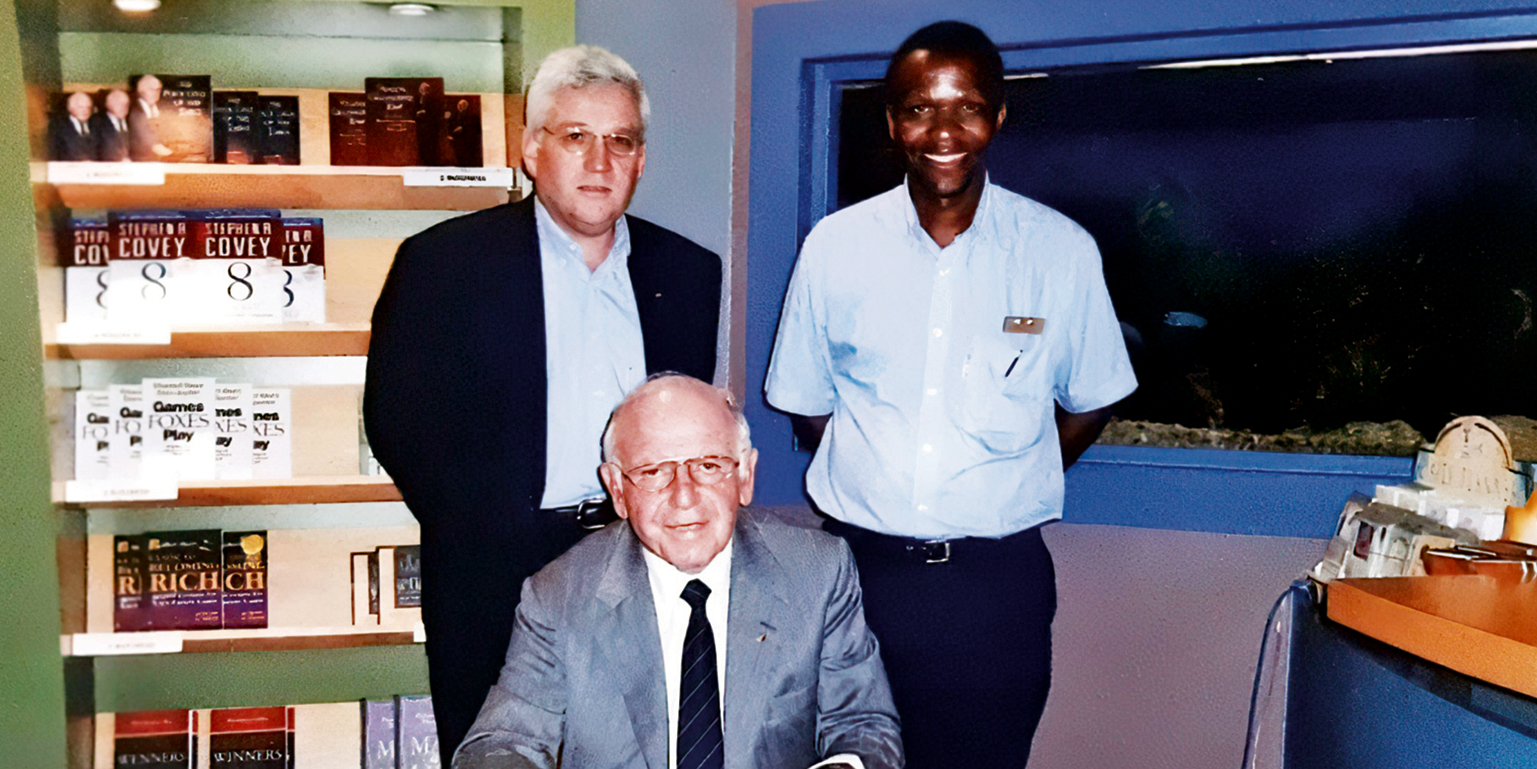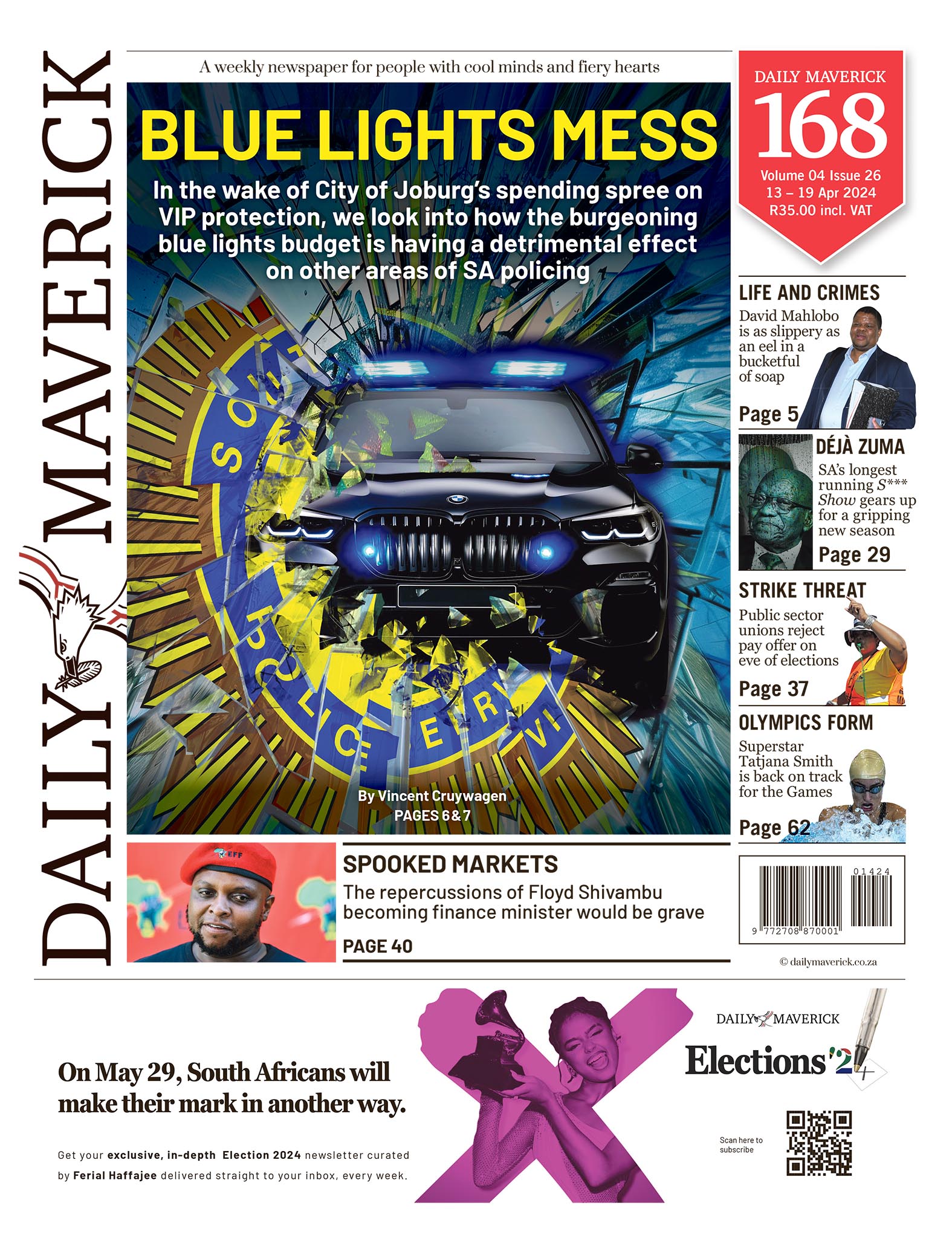RETAIL
Pick n Pay ‘destroyed me’ — retailer’s original black franchisee describes eight years of ‘torture’

But George Senosha, who no longer has an income, says he isn’t going down without a fight.
He was Pick n Pay’s prized first black franchisee, who introduced the retailer to a sceptical township market in the 1990s, helped to train other emerging franchisees and, at one time, processed millions of rands monthly through the tills of his vibrant store in Soshanguve.
He brushed shoulders with presidents, was deeply invested in his community and became an icon of black retail success. Then, when construction delays at the nearby railway station started throttling business, he reached out to the retailer for relief.
Had it moved quicker to buy the store, he alleges, and not dragged out the process for a year, which caused him to rack up further debt, life would be very different today. Now, with nothing left to lose, George Senosha is calling on township customers to boycott Pick n Pay’s Boxer stores because of the way it has treated black franchisees.
He says Boxer’s success is all owing to the labour of black-owned franchisees like him in townships. Acquired in 2002 by PnP, Boxer is one of the flagging retailer’s prized assets, boasting 295 superstores, 150 liquor stores and 31 Build stores across South Africa and Eswatini. A listing on the JSE is imminent.
For it’s part, Pick n Pay says it has built a successful franchise estate, giving opportunities for numerous entrepreneurs to thrive. “We are deeply invested in the success of all our franchisees, understanding that the retail landscape poses challenges where not every venture will achieve the desired outcome. Not all will be successful, and we are always saddened when a business does not succeed.”
Senosha, a former hotelier, left the industry in 1997 to pursue a career in retail, joining the then Warmbaths (Bela-Bela) Pick n Pay in 1997 as its floor manager.
Two years later, he made his first bid for a PnP franchise, which failed. In 2002, with the help of his bosses at a branch near Menlyn, he became PnP’s first black franchisee with a store in Waterglen, Pretoria. As word got out that the store had a black owner, Senosha realised customers were using two taxis to get to his store, so he put together a proposal to open a PnP in Soshanguve.
Township residents were suspicious at first: they viewed PnP as an expensive store from the suburbs. Senosha sought to dispel this by educating the public about how retail pricing is determined. In September 2005, his second store opened next to the Mabopane train station in Soshanguve.
It soon turned into a training centre for other black franchisees, which helped to forge relationships with various government departments, including the Presidency and Small Business Development.
He opened a third store in Mabopane and was recognised by the group as an outstanding franchisee, receiving the Raymond Ackerman Chairman’s Award. Other accolades followed, including the City of Tshwane’s Best Community Builder of 2018.

Clockwise from left: Luke Louw, then Pick n Pay general manager for the northern region, George Senosha and company founder Raymond Ackerman. (Photo: Supplied)
Trading difficulties
In Tshwane business and community forums Senosha is legendary, but all that came crashing down when his business started bleeding customers.
He says it’s been eight years of “torture” since he first raised concern about his trading difficulties in 2016, and in that time PnP has not only delayed taking action to stem the bleeding, but has destroyed him by blocking the sale of his store to Shoprite, which had offered him millions more for the Soshanguve branch.
PnP had promised to come up with an “amicable solution” but then sent him a settlement he could not accept.
“They said they are not in the business of compensation. I don’t want compensation. I want what is due to me and they haven’t paid me for my store.”
Instead of the R30-million the store was valued at, PnP seized his store and called in a R6.6-million debt from his Mabopane store, which has crippled him financially. Senosha has lost everything: he is about to be evicted from his flat.
PnP cut off communications after offering a “goodwill gesture” on 29 January 2024 – with the condition that a documentary film, Till Debt Do Us Part, directed by Tshililo Muzila, be halted.
Muzila says his documentary will be aired later this year. “If it was indeed a goodwill gesture, they should have done it there and then before he accumulated so much debt.”
PnP said: “This matter with Mr Senosha dates back to 2017. It is also important to clarify that, at the time, Mr Senosha attributed the reason for his business difficulties and the ultimate sale of his business to multiple things, including external factors unrelated to our business and beyond our influence.
“Within our franchise agreements, Pick n Pay maintains the right of first refusal should a franchisee decide to sell their franchise business. Pick n Pay did in fact match the offer by Shoprite, as it was required in terms of the right of first refusal. This process requires consideration and cannot be expedited hastily and has to comply with regulatory requirements for the sale. We would never purposefully prolong this process to the detriment of any franchisee.
“We have always sought to support our franchisees through difficult times, particularly those from previously disadvantaged backgrounds, by offering franchise fee waivers and extending payment terms to assist with cash flow relief.
“As a goodwill gesture, we offered to forgive Mr Senosha’s debt. Unfortunately, this offer was declined, accompanied by unsubstantiated demands for compensation.
“While we empathise with [his] situation, as a responsible retailer with multiple stakeholders, we cannot dispense funds without basis. We remain committed to fostering growth and prosperity within our franchise community. We are dedicated to working collaboratively with our franchisees to navigate challenges and pursue opportunities for mutual success.”
Senosha doesn’t want compensation; he wants reparation.
With no income and a shattered credit record, his next move is likely to be the informal settlement. But he isn’t going down without a fight: “If I go to the squatter camp I’m taking PnP with[me]; they will come and stay with me in the squatter camp.” DM
This story first appeared in our weekly Daily Maverick 168 newspaper, which is available countrywide for R35.
















 Become an Insider
Become an Insider
BEE policies will destroy this country….The End
An odd tale at best…. seems to me that something other than what was written has taken place. Georgina, perhaps some detail, some reality, on the piece.
This has got nothing to do with BEE. This guy was successful franchisee until factors beyond his control affected his business. He got an offer for his store and Pick ‘n Pay blocked the sale of said store as they had the right of first refusal. All good so far. They then took a year to do their due diligence, this is unacceptable, because they receive financial statements on a regular basis to ensure that the franchisees are paying them what they are supposed to. This delay then caused the sale to fall through and Pick ‘n Pay then decided they didn’t want the store for the price offered and then claimed the store and called in the debt and was offset from his other franchises which then crippled him.
Not all successful black people made it through because of BEE. Unlike white socioeconomic empowerment practiced during apartheid which continues today to yield benefits for most previously advantaged groups. Regardless of where other races ended, the fact is they got upliftment of varying degrees. Unlike blacks
BEE was meant to give previously disadvantaged a chance. However, most blacks didn’t benefit from BEE neither. A lot of blacks still have to struggle through life in shacks to try and get an education, a job or start a business. You know this is true but it’s more convenient to blame BEE.
Please critically examine this very offensive assumption re black business/success. Such comments are distracting us from moving on and dealing with real issues in our society such as corruption through BEE. Or recognising a man’s entrepreneurial spirit and his struggle with PnP.
It is
BEE policies offer a safety net to the incompetent at best and are a slap in the face for the competent who are capable on their own cognisance without getting a leg up through racist and demeaning legislation.l
A franchise is an independent business, and as such, would not contribute anything to PnP’s BEE scoring. Your comment does not make much sense in context.
Oh but it does make sense Greeff, if one registers the dog-whistle.
Supposedly out of context “BEE” comments is the polite bigot’s attempt to rant about the “blacks”.
This is a strange story. It does not in any way indicate who did exactly what to whom, or why his business began to fail; what PnP’s obligations to franchisees is etc, etc. It really is very light on detail, and as such it makes it difficult to make an informed opinion. Well, to me at least. So, what appears to be a bit of a “nothing story” seems to have at its sole ambition to rubbish PnP’s name. Not sure that is a good thing at all.
I smell a big fat rat. There is more to this than meets the eye.
Great
“PnP […] blocking the sale of his store to Shoprite, which had offered him millions more for the Soshanguve branch.”
“Pick n Pay did in fact match the offer by Shoprite, as it was required in terms of the right of first refusal.”
So where lies the truth between these two opposing accounts? Surely that is important to establish, as the entire story hinges on it.
Georgina, this is a very poorly written article. Please provide us with ALL the facts in this story.